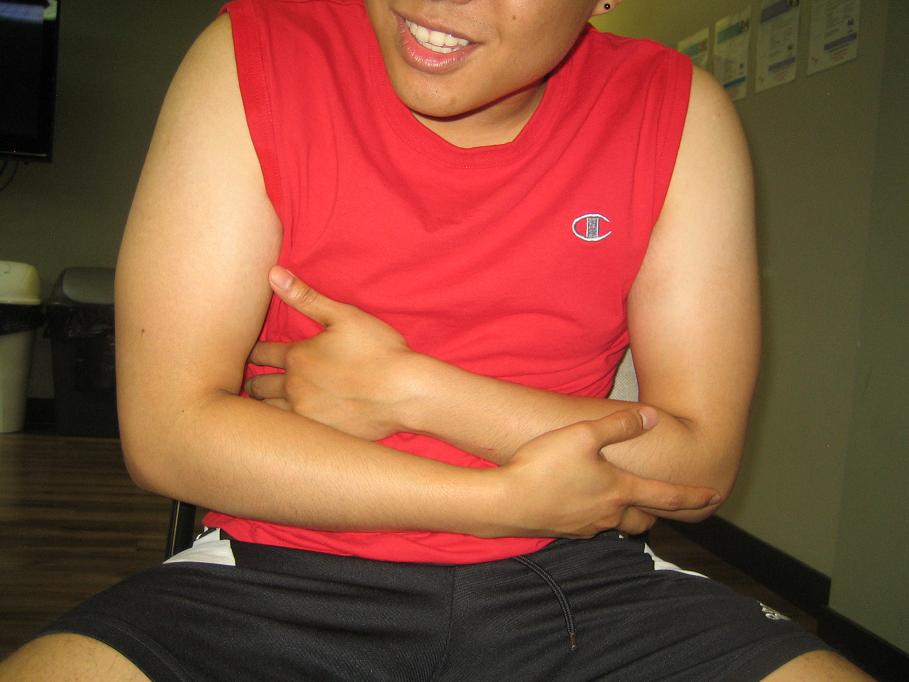Esophageal spasms are condition where the contractions of the esophagus are uncoordinated, irregular and sometimes the contractions are strong. Generally, the esophagus is the tube which attaches the stomach to the mouth. Contractions usually happen is the esophagus which makes food from the mouth to move to the stomach. Furthermore, the contractions happen in regular and coordinated rhythm.
Esophageal spasms prevent the food from entering the stomach and just remains stuck up in the esophagus and this condition is called diffuse esophageal spasm or DES. Furthermore, the spasms travel down the esophagus very strongly in a coordinated manner and this condition is called nutcracker esophagus and the contraction causes severe pain. In addition, these spasms are like a severe chest pain that last for a few minutes to hours.
Causes of esophageal spasm
- Abnormal functioning of the nerves which functions in controlling the muscles for swallowing
Burning sensation or heartburn felt on the chest and a feeling that a food is stuck in the middle of the chest. - Suffering from GERD or gastroesophageal reflux disease
- People aged between 60-80 years old
- High blood pressure or hypertension
- Drinking red wine
- Consuming very hot or very cold drinks or foods
- Lastly, anxiety or depression
Symptoms
Severe squeezing pain in the chest and spreads to the back, arms, jaw and neck and mistaken for angina. This needs immediate treatment.
- At first, burning sensation or heartburn felt on the chest and a feeling that a food is stuck in the middle of the chest.
- Difficulty in swallowing food and liquids and pain with swallowing or dysphagia.
- In addition, food and drinks goes back into the esophagus or regurgitation
- Lastly, difficulty in swallowing especially very hot or cold liquids or red wine.
Treatment
- At first, take the prescribed medications such as a proton pump inhibitor or lansoprazole for underlying conditions such as gastroesophageal reflux disease, and heartburn.
- Take the prescribed antidepressant to lessen the pain and the sensations in the esophagus.
- Prescribed muscles relaxant to lessen the pain when swallowing. Use Botox injections and calcium blockers to lessen the severity of the spasms.
- Paroral endoscopic myectomy (POEM) is where the doctor inserts an endoscope through the mouth and down the throat to make a slit in the internal lining. In addition, the doctor cuts the muscle found in lower end of esophagus.
- Control stress by exercising regularly and meditating to prevent worsening of the condition.
- In addition, eat medium temperature foods and drinks such as warm or cool drinks and food to prevent spasms.
- Avoid inhaling tobacco smoke to prevent irritation and cause damage to the esophagus. Quit smoking.
- If overweight, lose some weight to prevent making the condition worse.
- Consume food rich in fiber to lessen some symptoms of the condition.
- Avoid eating spices to prevent esophageal spasms
- Lastly, dilation is a device that the doctor places down on the esophagus to expand narrow areas for easy passage of food.
Tips
- If experiencing episodes of esophageal spasms, slowly sip on water, and then take slow deep breaths between sips.
- Add 1 tablespoon of raw and organic apple cider vinegar to 12 ounces of water. Sip on the solution slowly if there are spasms. Consume this solution at least once or two times every day to prevent episodes of spasms.
FACT CHECK
https://www.healthline.com/health/esophageal-spasm
https://www.webmd.com/digestive-disorders/what-is-esophageal-spasm#1
https://www.mayoclinic.org/diseases-conditions/esophageal-spasms/symptoms-causes/syc-20372250


